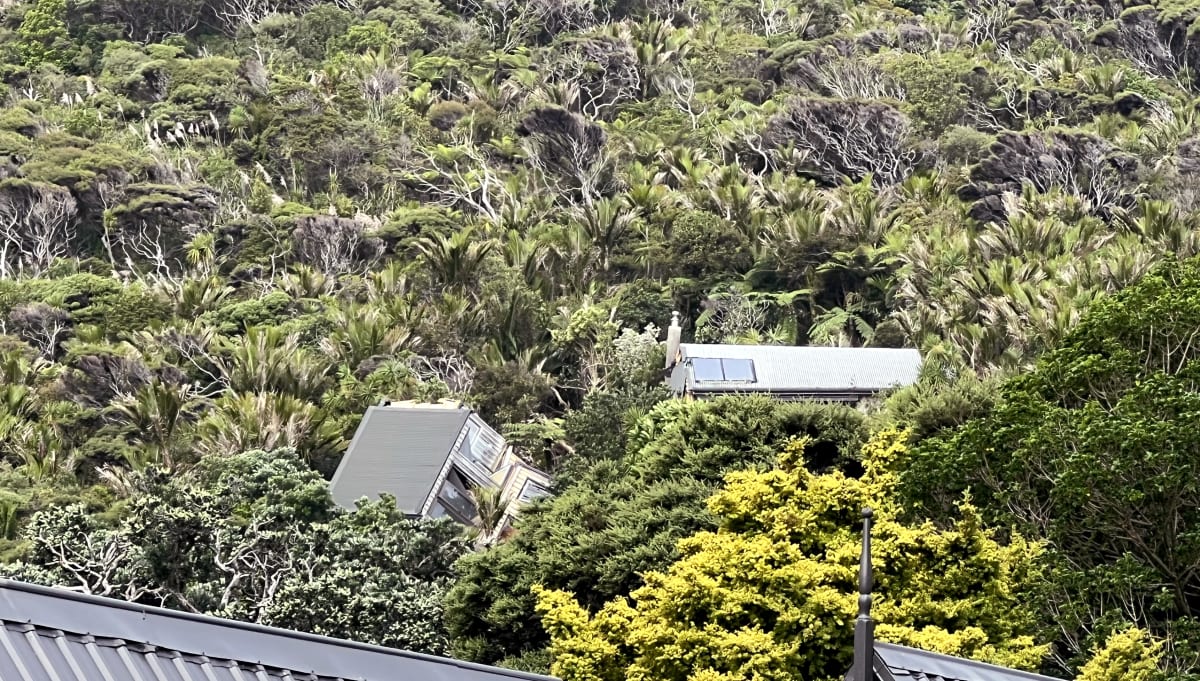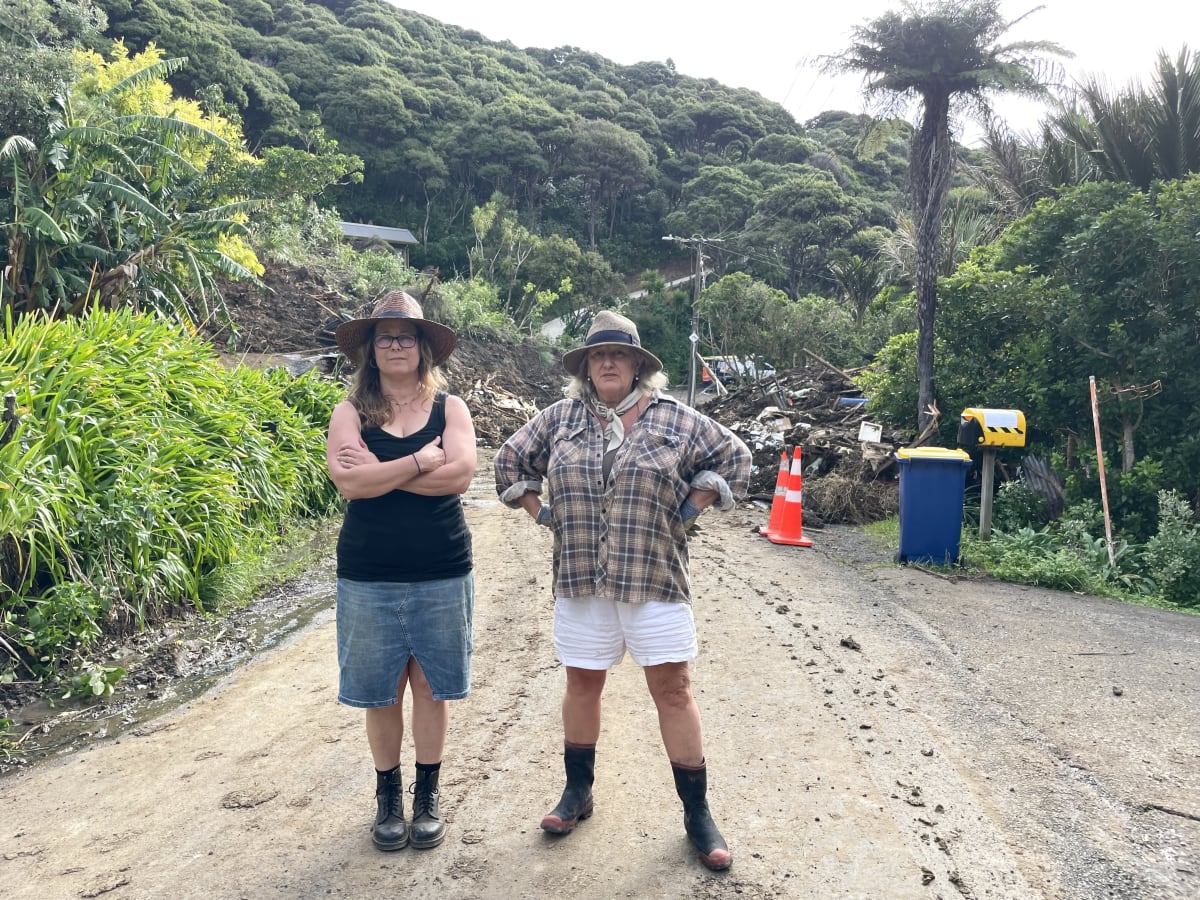The village of Piha, built on the hills overlooking New Zealand’s most famous surf beach is drying out after being hammered by Cyclone Gabrielle. Newsroom’s investigations editor Melanie Reid has lived there for 20 years and was in the thick of it when the killer storm struck. She talks to Newsroom’s co-editor, Mark Jennings, about the issues Piha is facing and what other devastated areas will soon be dealing with - if they aren’t already.
“I think the hardest thing is seeing parents holding their kids' hands and just looking at their wrecked houses. They are asking what is going to happen now? Where are they going to find somewhere to live? How are they going to pay the mortgage and afford to pay rent too? Will our insurance cover all the costs they are facing? I know there will be answers to all these things but there seems to be no easy way find out, especially when you don’t have power, or the internet. It is very stressful, and we need some sort of central place where all this information is available.

“I know we are not facing the same scale of challenge as Hawkes Bay or Gisborne, but it is pretty bad here and the fear factor is really quite high.”
Reid’s normal investigative reporting has gone on hold while she helps her neighbours and sends video reports to Newsroom. Despite being just 40km from Auckland, Piha’s population of approximately 700 is essentially cut off. No power and a badly damaged access road.
READ MORE:
* Cyclone's destruction in seven charts
* Cyclone Gabrielle: Hillside falls through Piha house
Her own house is safe but Reid’s friend Tasha Gray, who is now staying with her, doubts she will ever return to her own property.
“I lived at the bottom of a steep slope and on that first night (of the cyclone) a torrent of water came through the garden, so I got ready to leave. I then heard a noise and opened the door and saw the neigbour’s house go crashing past. It rolled over, and then over again, and onto the road. I grabbed some stuff and left.
“I went back the next day and got some pots and pans and my artwork. I met an engineer on the road and I could see in his eyes how worried he was. He told me those slips may not have finished. I’ve said goodbye to living in that house as I expect it to disappear.”

On Thursday, 40 homes in the street where Gray’s house is located were evacuated as the road itself started to drop away.
Like many people across the North Island, Gray did not expect to lose her home despite the severity of the cyclone.
“We thought we were in the best part of Piha, it has always been really sheltered here. My home was based on an original bach. These baches have been here forever and survived hundreds of storms. No one in our street was thinking about landslides. I guess lots of people, here and in other places, will have to reassess if your home sits under a hill."
Reid says Piha residents are used to wild weather and are well prepared for it, “but this was something else”.
“The rain just didn’t stop, it kept going and going, and it was coming in sideways. We knew there would be flooding but we didn’t expect the hillsides to collapse. Multiple landslides took out dozens of houses and chunks of roads.

“We are all just grateful that no one got hurt because there were some really close calls, like people just getting out in time before boulders came down on their houses and the walls imploded.
“It might seem strange to outsiders, but people here are very closely connected to this place and its landscape. I keep hearing local people saying poor Piha, poor Piha, including those who have lost everything.”
Reid says the sense of community and its collective action has been deeply reassuring for Piha people and she expects it will be important for other ravaged regions.
“You can shout out to anyone, and they will come and help. We needed to move all someone’s possessions out of a house yesterday and the crew from the surf club arrived and we had it done in a couple of hours. There is just so many people helping....the trucks delivering the diesel have arrived, all community facilities are working together, like the shop's giving away food for free, the takeaway bar is giving away food for free. The chefs at the RSA are cooking for everyone. The surf club is providing temporary accomodation so people have got somewhere to go as well.

“Our biggest problem is not having power because that means lots of people are without water. We have plenty of water in our tanks but without electricity to power the pumps we can’t use it.”
Tasha Gray says the village is probably lucky in that it can look after itself.
“We have got a lot of very practical people here. We are lucky that every plumber, builder, electrician, and digger driver that wants to surf lives in Piha!
“I have had amazing help from people like Melanie and my friends in the volunteer fire brigade. I saw a mum with her four-year-old daughter, they were in shock, and I was so pleased I could support her and feel like I was giving back.
“My hope now is that more rain doesn’t come as that would be really bad.”







